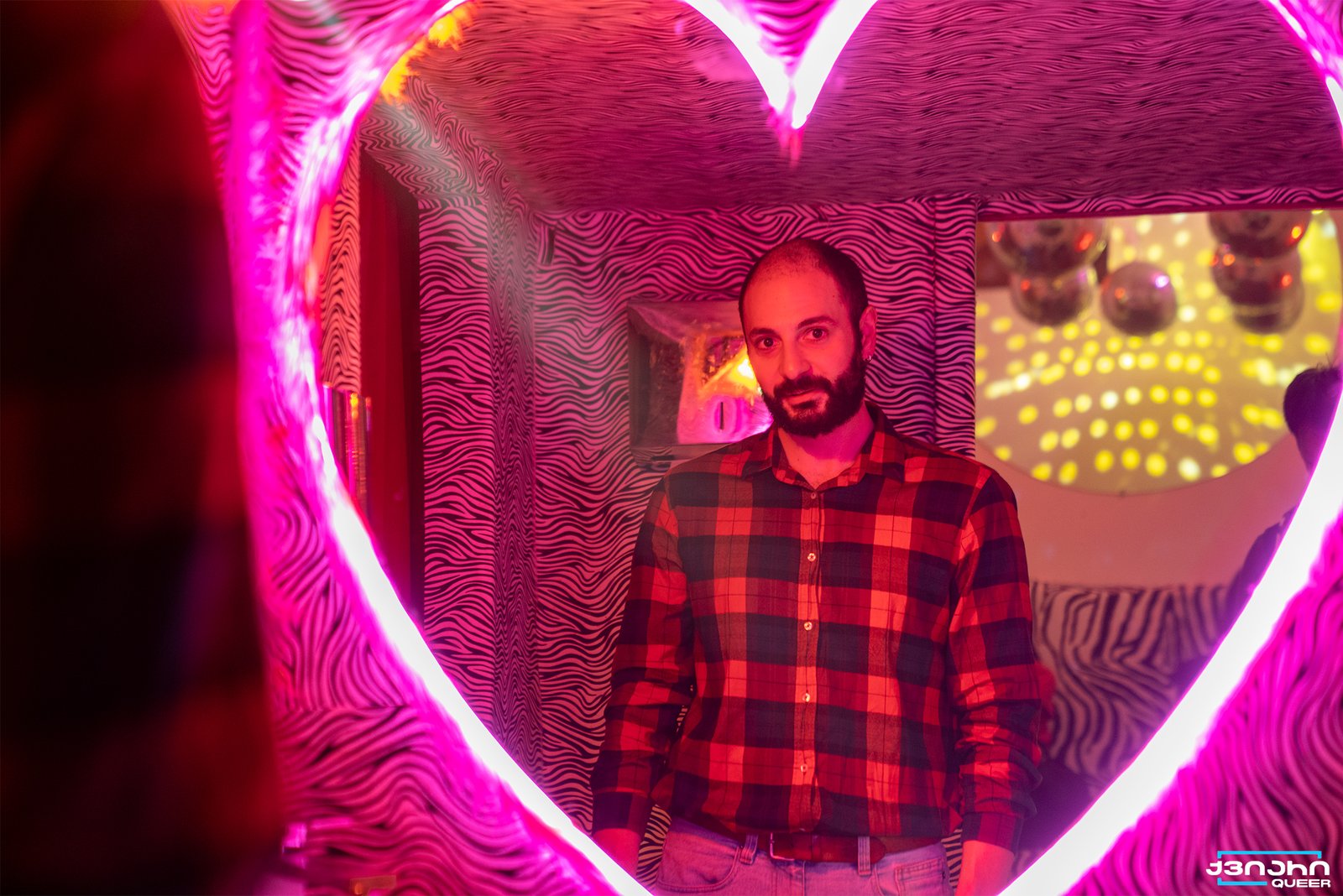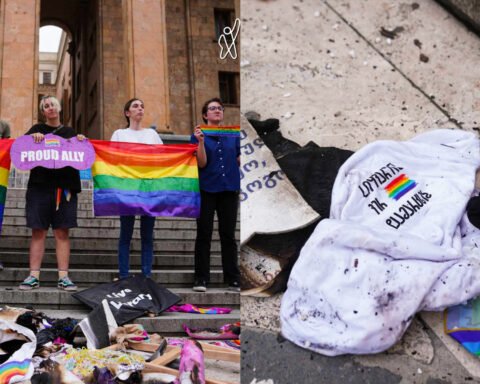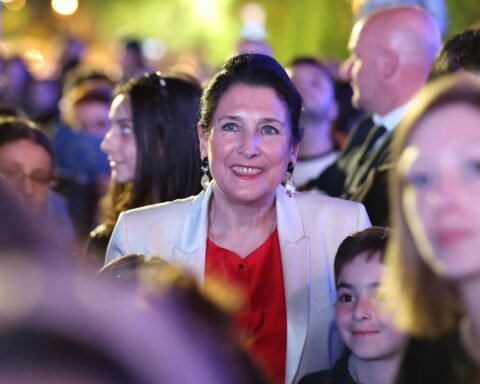An uncle was arrested on charges of abusing an 8-year-old child; A 60-year-old man sexually assaulted a 13-year-old girl; A 14-year-old child was raped by a man under the age of 25, after which the father physically assaulted the girl; A 12-year-old child gave birth — these are just the cases that have been reported in the last few days.
According to the statistics of the Ministry of Internal Affairs of Georgia, in 9 months of 2022 (January-September), 396 crimes against the freedom of sexual inviolability were registered, including 137 rapes, and 259 other crimes. As for the previous year, 395 facts were registered, including 133 rapes, and 262 others.
It should also be noted that, as a rule, actual statistics are heavier than what is known. Stigma, mistrust of law enforcement systems, etc. may be the reason for low referral.
According to a 2021 study by the World Health Organization (WHO), one in three women worldwide has experienced physical or sexual violence from a partner or sexual violence from a non-partner. Violence is more common on the part of the partner. WHO says that almost a third of women aged 15-49, 27%, have experienced some form of physical or sexual violence from a partner. The World Health Organization also says that violence has a negative impact on women’s physical, psychological and reproductive health.
According to the 2021 statistics of the United Nations Women’s Organization (UN Women), 26.2% of women aged 15-64 in Georgia have experienced at least one of the following: sexual violence from a non-partner, sexual violence in childhood and sexual harassment.
Women are abused from childhood. Both family members and strangers are violent. Queer spoke to women who shared their experiences.
Warning: The stories told by the interviewees involve sexual abuse and, in some cases, the details can be difficult to read.
Ana Darbaidze
Anna was sexually assaulted 4 times. One of the most difficult cases for her turned out to be the one that happened in Kutaisi. Anna was staying with a friend, the house was near the forest and the river. As her friends went to the forest to collect mushrooms, Anna stayed alone by the river while talking on the phone.
“A fisherman approached me. He offered me a cigarette, but I refused while smiling, thinking he was an old man. We soon said goodbye. I told him that my friends were close so I was gonna leave, he said he was going to give me something. I thought he knew my friends, as no one else has a house nearby, so the fisherman and shepherds know the family, I thought he really wanted to pass something along. As soon as I approached him, he grabbed my hand and pulled me towards him. I hit him in the face with my phone. I realized what he was trying to do right away. I was lucky that this was my physical response, and not fear or inaction. I caused so much pain that he let go, while yelling at me.”- says Ana
According to her, it was the absolute aggressive action that became the basis of her survival – if the abuser realized that he was physically much stronger than Ana, they were so far away, no one could have helped her.
Ana had the second case of violence 4-5 years ago, in one of the clubs. She remembers that she would periodically take a short nap, which would increase her energy, and then go back to dancing. As she says, she managed to escape from the abuser thanks to the fact that she was sober – she did not use any alcohol or drugs.
She tells us that while she was sleeping, she felt someone rubbing her and trying to open her pants. As soon as she woke up, she realized that an unknown man was trying to rape her. According to Ana, due to the shock, at that moment, she did not understand what she could do, so she just ran away. Later, when she told her friends and the organizers of the event about the incident, they told her that they would kick the abuser out of the club area with the help of security, as they had done this to other people many times. According to Ana, just making him leave the club area is not enough to counter what the man was doing, but at that moment she chose to simply leave the dangerous environment and situation.
The other two cases are related to sexual harassment in public transport. Ana notes that in none of the cases did the passengers support her, and one of the men even tried to protect the abuser. In these cases too, she emphasizes her aggressive self-defense and notes that it helped her in each case of violence.
Although Ana clearly remembered the face of the violent fisherman, and took a picture of the violent man in the transport, which she has kept to this day, she says that she did not contact the police due to distrust in the system. According to her, the law enforcers do not take rape victims seriously, so they would not help the one who escaped the violence either.
Salome (the name was altered)
Due to the fact that abused women do not feel safe, Queer’s next respondent preferred to remain anonymous to the reader. That is why his name has been changed in the article.
Salome remembers that at the age of 15 she was the bravest girl in the whole school and was not afraid of anyone, however, everything changed after the sexual abuse.
In 2015, Salome, who was a minor at the time, was returning home from her friend’s birthday and had to walk several kilometers. Soon she felt that someone was following her, but she did not look back. As she approached a relatively dark part of the road, her hair was pulled so hard that she fell down. An unknown man tied her hands and covered her mouth.
Salome recalls that the bravest girl in the school turned into a frightened child, she lost her ability to act at the moment of violence and was unable to resist. she begged the man to stop and threatened to sue, but to no avail. After inflicting physical injuries and sexual violence, the perpetrator left the naked, bloodied girl on the ground. Salome recalls that she barely found the physical and mental strength to reach home that night. Due to the severity of the trauma, the face of the abuser was completely erased from her memory.
This was not the only case of sexual violence in her life. A few years later, she had to hitchhike from the village to the city, and on the way she discovered that the three men sitting in the car were in a state of inebriation.
“They were young, 29-30-year-old boys. I didn’t make a sound the whole way. Suddenly the guy sitting behind the wheel turned around and told me that he was going to buy something in the store. He got out of the car and returned with the beers. I told them that I was in a hurry and if they were going to stop, I would follow someone else. I will hurry, he answered. I asked him to stop the car where we were. I panicked. He comforted me, but in such a way that one could see evil intent in his eyes. I said I would call the police, I showed the phone. He snatched the phone from my hand and started laughing. I told him I was going to jump, but he wouldn’t stop. He locked the car doors and turned somewhere. There were three of them, all three were looking at each other and laughing. The boy who was sitting in the back started touching me. He would put his hands on my shoulder or on my legs. I finally hit him. His and my hit happened at the same time. They stopped the car and dragged me out by my hair. I tried to hit them with something and somehow get rid of them. I knew what they were going to do and I was so scared, I didn’t know what I was doing. I was shaking, I couldn’t breathe, I remembered the previous rape. I was losing my mind, but that bastard was punching me in the face, they said we want to hear you scream, which no one but us can hear. Who was touching me where, who was hitting me where, I didn’t feel anything at all. All three of them raped me.”
According to her, she still has to visit a psychotherapist and take medication, but nothing can help the disgust and fear that closeness with men causes.
Patricia Gogelia
Patricia Gogelia could not talk openly about sexual harassment for many years, because she blamed herself and was angry that she could not do anything. She was 14 years old when she was sexually harassed on a bus.
“I had a fight with a friend and I would have spent the whole way thinking about it, if it wasn’t for a strange, unclear feeling in the rare area. At first I thought that some passenger’s bag was touching me, but this feeling was so strange and uncomfortable that I got off 5 stops before my house and continued on foot. When I entered the house, I went to the mirror, put my hand behind my back and checked the place where I thought the bag was. I realized that what was behind me was not a bag at all. As soon as I realized what had happened, I burst into tears, ran into the bathroom and hysterically tried to wash off the feeling of dirt that suddenly consumed me.”
A few days later, on the same bus, she felt the touch again.
“I thought I would do something this time, but I ran away from fear and shame. I got off the bus again 5 stops earlier, but this time I looked back and saw a man the age of my grandfather looking at me with the eyes of an innocent lamb and smiling at me.”
According to Patricia, until an acquaintance shared a similar story with her, she could not talk about this fact. Later, she discovered that almost all of the women living around her had experienced sexual harassment on public transport or in other spaces.
To this day, she cannot travel by overcrowded transport. Every time someone steps up behind her, she catches her breath. According to her, if she could talk to her past self, she would tell 14-year-old Patricia that she is not guilty of anything and that all her anger should be directed at the person who dared to treat a minor like that.
“It doesn’t matter where and under what circumstances the violence happened, what the woman was wearing, whether she was sober or not — there is no reason that justifies violence. Sex without consent is rape.”
The women’s movement demands a response. One of the necessary steps towards solving the problem is the amendment of the law on rape. At the same time, members of the women’s movement focus on the importance of consent and access to justice. According to them, consent is crucial, and lack of consent is rape.
According to Article 137 of the Criminal Law Code of Georgia, rape is “sexual penetration of a person’s body in any form using any part of the body or any object, committed by violence, threat of violence or use of the victim’s helplessness”.
It should be noted that the women’s movement has repeatedly requested the parliament to change the flawed article on rape. In November 2020, the activists addressed the parliament with an open letter, in which they demanded the inclusion of the component of consent on the part of the victim in the rape article and stated that the existing legislation left many crimes unpunished.
According to the letter, Georgian legislation defines rape as a crime committed by violence and helplessness of the victim, and not by the element of lack of consent, which is unacceptable.
“Definitions of sexual crimes in the Criminal Code of Georgia are limited, and in practice too rigid, inflexible and Soviet-style evidentiary standards are established in relation to sexual crimes. As a result, the perpetrators are punished for the facts of sexual violence, where there are physical injuries on the victim’s body and biological material confirming the sexual act,” the open letter reads.

Today, November 25, at 20:00, in connection with the international day of violence against women, the women’s movement will hold a protest march. They will go from the Republic Square to the Parliament, and after meeting with the legislative body, they will demand to change the legislation. Creative spaces, night clubs and music festivals are joining the demand.
“Today, the Georgian legislator is not interested in whether a woman’s will and consent is expressed. This does not correspond to international standards, international conventions, including the Istanbul Convention, which Georgia has ratified. We demand a change in the law. A woman shouldn’t need to prove that she was beaten in order to prove that she was raped,” said Mari Kurtanidze, an activist of the women’s movement, when announcing the march.
The Executive Director of the United Nations Population Fund (UNFPA), Natalia Kanem, says that violence against women and girls still leaves many of them without dignity and well-being and deprived of their right to a peaceful life. This will continue, she said, until women’s rights and choices are considered secondary to men’s rights and choices, and until their bodies are not considered their own property.
“There is almost no space and place left where violence against women and girls does not occur. Women and girls are abused in families, schools, workplaces, parks, public transport, sports fields and, increasingly, online. This form of violence is fueled by climate change and war. Women and girls do not feel completely safe and secure anywhere. Violence against them remains the most intractable, the most devastating, the most overlooked and neglected violation of human rights in the world,” the statement reads.
November 25 is the International Day for the Elimination of Violence against Women. November 25, 1981 was marked as the day of struggle against gender violence. The date is associated with women political activists, the Mirabal Sisters: Patria, Minerva and Maria Teresa, who fought against the dictatorial regime of Rafael Trujillo in the Dominican Republic. On November 25, 1960, all three sisters died in the fight against the regime, and November 25 was chosen as the day of the fight against violence against women in their honor.
International organizations conduct a campaign against gender-based violence every year. Different types of activities are planned and organized: actions, marches, performances and other types of protests. Each year, activists choose a key theme that will decide what they will focus on in the current year’s campaign.
According to the 1993 UN General Assembly Declaration, violence against women is any act of gender-based violence that causes or is likely to cause physical, sexual, psychological harm or suffering, including threats, coercion or arbitrary deprivation of liberty in public or private life.
According to the current legislation of Georgia, violence against women refers to all actions characteristic of gender-based violence committed against women in public or private life, which result or may result in physical, psychological or sexual suffering or economic harm to women, including threats to commit such actions, coercion or arbitrary deprivation of their freedom.








